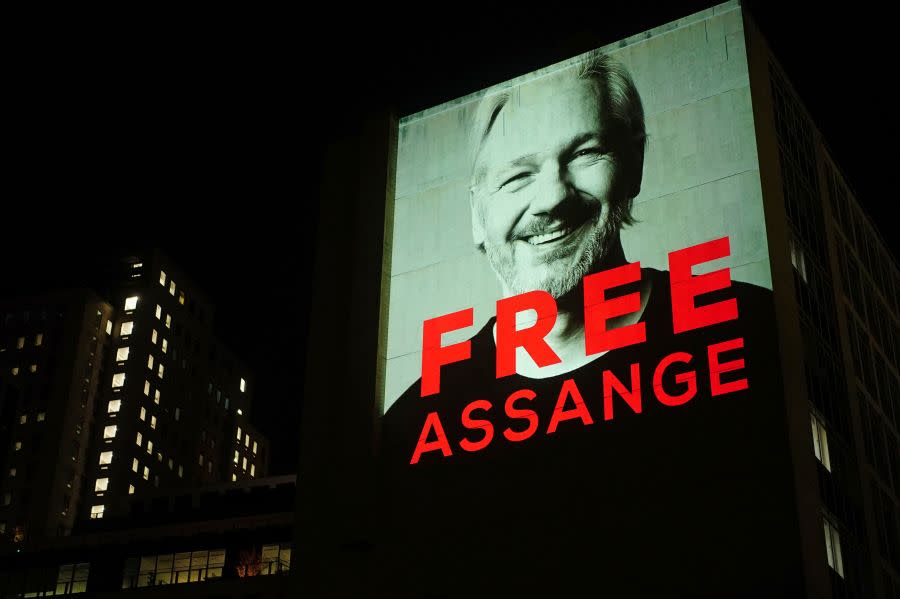Julian Assange lawyer submits new registration under foreign agent law

Julian Assange’s lawyer submitted a new registration this week with the Justice Department’s Foreign Agents Registration Act (FARA) division for his ongoing work on behalf of the embattled Australian WikiLeaks founder.
The U.S. is trying to extradite Assange from London to face criminal charges for allegedly conspiring with former Army intelligence analyst Chelsea Manning to unlawfully obtain and publish classified national security documents that “could cause irreparable injury to the United States or be used to the advantage of a foreign nation,” according to the 2018 federal indictment.
Human rights advocates and the New York Times Editorial Board have warned the prosecution of Assange would infringe upon press freedoms.
Assange’s lawyer, Barry Pollack, a partner at Harris St. Laurent & Wechsler, is a seasoned trial lawyer who successfully secured the acquittal of a former Enron executive charged with criminal fraud following one of the biggest corporate bankruptcies in American history.
FARA carves out an exemption for “legal representation of a disclosed foreign principal before any court or law or agency of the United States government.”
But Pollack may engage in “certain services ancillary to the representation,” according to registration documents filed by Harris St. Laurent and Wechsler with the Justice Department, therefore the firm filed “out of an abundance of caution.”
“The services that could even arguably be considered ancillary to the representation rather than part of the registration include providing briefings about the litigation to parties interested in the litigation and participating in public educational events about the litigation,” according to the disclosure.
Pollack declined to comment.
Steve Roberts, a partner at Holtzman Vogel, told The Hill that the Justice Department “has been increasingly narrow on its view of the legal exemption in recent years.”
“They’ve made it clear that it only applies to a lawyer practicing law, but not doing other activities that a lawyer might do in service of a client around those legal services, like PR work or lobbying,” Roberts added.
“His registration calculus was quite possibly an awareness that more scrutiny would be on his work for Assange, and registered out of an abundance of caution for the occasional media briefing,” he added.
Pollack previously registered under FARA for “public advocacy in conjunction with legal representation” on behalf of Assange through the Law Offices of Barry J. Pollack LLC in July 2021.
He joined Harris St. Laurent and Wechsler last February, according to a press release issued by the firm, hence the new registration.
While Pollack’s previous registration notes his legal and advocacy “activity should be exempted” under FARA, he did disclose some public appearances on behalf of his client.
Pollack disclosed meeting with Australian members of Parliament to provide background information on the case in September 2023. He also disclosed discussing Assange’s case on a National Press Club panel in December 2022 and, in March 2023, attending a screening of the documentary “Ithaka” at the University of Maryland’s Merrill College of Journalism and participating in a panel discussion after the screening.
“Some of the activity from last time would not clearly need to be disclosed. Outreach aimed at influencing the views of foreign audiences, for example, largely falls outside FARA’s scope,” Josh Rosenstein, a member at Sandler Reiff Lamb Rosenstein & Birkenstock, told The Hill.
“But making speeches would generally be disclosed,” he added.
Rosenstein pointed to 2020 remarks by Adam Hickey, former deputy assistant attorney general for the National Security Division, regarding limits to the lawyer exemption.
“Representation of an individual client in an adjudication of that client’s interests is distinguishable from advocacy to change U.S. government policies or advocacy on behalf of a foreign government or political party,” Hickey said, adding that “public relations work that has a tangential relationship to pending litigation would fall outside the exemption. Calling a press conference to announce a lawsuit would not.”
For the latest news, weather, sports, and streaming video, head to The Hill.


